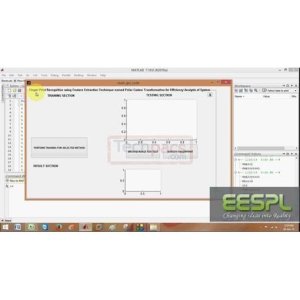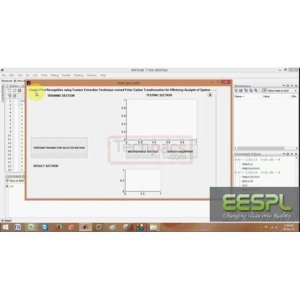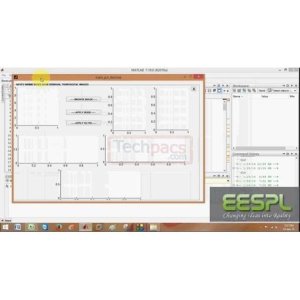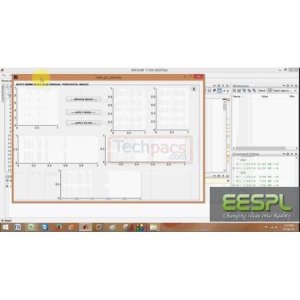Improving Optical Code Division Multiple Access Performance in Free Space Optics through Weather-Resilient CSRZ Modulation
Problem Definition
The field of optical code division multiplexing (OCDMA) in free space optics (FSO) systems is facing a significant challenge when it comes to maintaining performance under varying weather conditions. One of the primary concerns is the degradation of the quality factor of these systems, especially when faced with adverse weather elements such as rain. This degradation can have a considerable impact on the overall performance of the OCDMA system in FSO, leading to decreased efficiency and reliability.
Addressing this issue is crucial in order to ensure the seamless operation of these systems, particularly in regions where weather conditions can be unpredictable. By finding solutions to reduce this degradation and enhance the performance of OCDMA in FSO systems, the reliability and effectiveness of these systems can be greatly improved.
This project aims to tackle these limitations and problems, offering a unique opportunity to optimize the performance of OCDMA systems in FSO under varying weather conditions, ultimately leading to more reliable and efficient communication networks.
Objective
The objective of this research project is to enhance the performance of optical code division multiplexing (OCDMA) systems in free space optics (FSO) under varying weather conditions, with a specific focus on the impact of rain during different seasons. By developing an advanced modulation scheme using CSRZ and analyzing parameters such as sweep iterations and attenuation values, the project aims to reduce the degradation in system quality factor caused by weather variations. The use of OptiSystem 7.0 software will allow for a comprehensive comparison of FSO systems with and without the CSRZ modulation scheme to study the effects of weather on system performance. Ultimately, the goal is to optimize the reliability and efficiency of OCDMA systems in FSO, leading to more robust communication networks in unpredictable weather environments.
Proposed Work
The proposed research project aims to address the challenge of improving the performance of OCDMA systems in FSO under varying weather conditions, with a focus on the impact of rain during different seasons. By devising an advanced modulation scheme using CSRZ, the project seeks to reduce the degradation in system quality factor caused by weather variations. By adjusting parameters such as sweep iterations and different attenuation values, the effectiveness of the modulation scheme will be analyzed under various weather conditions. The project will use OptiSystem 7.0 software to design and run the model, comparing the performance of FSO systems with and without the CSRZ system to study the weather impact in different seasons.
The rationale behind choosing CSRZ as the modulation scheme lies in its ability to effectively mitigate the impact of weather variations on OCDMA systems in FSO. By adjusting parameters such as attenuation levels and sweep iterations, the model will simulate real-world conditions to study the system's performance under different weather scenarios. OptiSystem 7.0 software was selected for its robust simulation capabilities, enabling a detailed analysis of the impact of weather on OCDMA systems in FSO. By considering various weather conditions like autumn, spring, summer, and winter, the project aims to provide valuable insights into how the CSRZ modulation scheme can enhance system performance and overcome the challenges posed by weather variations.
Application Area for Industry
This project can be used in various industrial sectors such as telecommunications, defense, aerospace, and research institutions where free space optics (FSO) systems are utilized for high-speed data transmission. The proposed solutions of employing an advanced modulation scheme like Carrier Suppressed Return to Zero (CSRZ) can be applied within different industrial domains to improve the performance of optical code division multiplexing (OCDMA) systems in FSO under varying weather conditions. Specifically, in the telecommunications sector, this project addresses the challenge of maintaining reliable communication links even in adverse weather conditions such as rain. By enhancing the performance of OCDMA systems in FSO through the implementation of CSRZ, industries can benefit from improved data transmission rates and reduced signal degradation during inclement weather, ultimately leading to better overall system reliability and operational efficiency.
Application Area for Academics
The proposed project can significantly enrich academic research, education, and training in the field of optical communications. By focusing on enhancing the performance of optical code division multiplexing (OCDMA) in free space optics (FSO) systems under varying weather conditions, the project offers valuable insights into overcoming challenges faced by these systems.
Researchers can benefit from the project by studying innovative research methods and simulations to improve OCDMA system performance in adverse weather conditions. The use of the Carrier Suppressed Return to Zero (CSRZ) algorithm provides a new approach to mitigate the impact of weather on FSO systems, offering a practical solution for researchers to explore and analyze.
In educational settings, the project can serve as a valuable learning tool for students in the field of optical communications.
By examining the effects of different weather conditions on FSO systems and analyzing the performance enhancements achieved through the CSRZ algorithm, students can gain a deeper understanding of the practical applications of optical communication technologies.
For MTech students or PHD scholars focusing on optical communications, the code and literature generated by this project can serve as a valuable resource for their work. By studying the implementation of the CSRZ algorithm and its impact on OCDMA system performance, researchers can further their research in developing advanced solutions for optimizing FSO systems under challenging weather conditions.
The future scope of this project includes expanding the study to incorporate a wider range of weather conditions and exploring additional modulation schemes to further improve FSO system performance. By continuing to investigate innovative solutions for enhancing optical communications in adverse environments, researchers can contribute valuable insights to the field and drive advancements in optical communication technologies.
Algorithms Used
The project involves using the Carrier Suppressed Return to Zero (CSRZ) algorithm to improve the performance of OCDMA systems in Free Space Optics (FSO) technology. This advanced modulation scheme aims to reduce weather-induced complications, particularly in rainy conditions during autumn. The model designed for the project allows for adjustments in various parameters to study the impact of rain, such as sweep iterations and different attenuation levels. OptiSystem 7.0 software is utilized to run the model and analyze the results, comparing the performance of FSO systems with and without the CSRZ system.
The study also considers weather conditions in different seasons to analyze the effect of weather variations on the system.
Keywords
SEO-optimized keywords: Optical code division multiplexing (OCDMA), Free space optics (FSO), Weather variation impact, Quality factor degradation, Carrier Suppressed Return to Zero (CSRZ), Modulation scheme, OptiSystem 7.0, Attenuation values, Bit error rate, Quality factor, Eye diagram, Bit period, Sweep iterations, Threshold value, Weather conditions.
SEO Tags
Optical code division multiplexing, OCDMA performance, Free space optics, FSO systems, Weather impact, Quality factor degradation, Carrier Suppressed Return to Zero, CSRZ, Modulation scheme, OptiSystem 7.0 software, Attenuation values, Bit error rate analysis, Eye diagram study, Bit period optimization, Sweep iterations adjustment, Weather impact analysis.
| Shipping Cost |
|
No reviews found!



















































No comments found for this product. Be the first to comment!